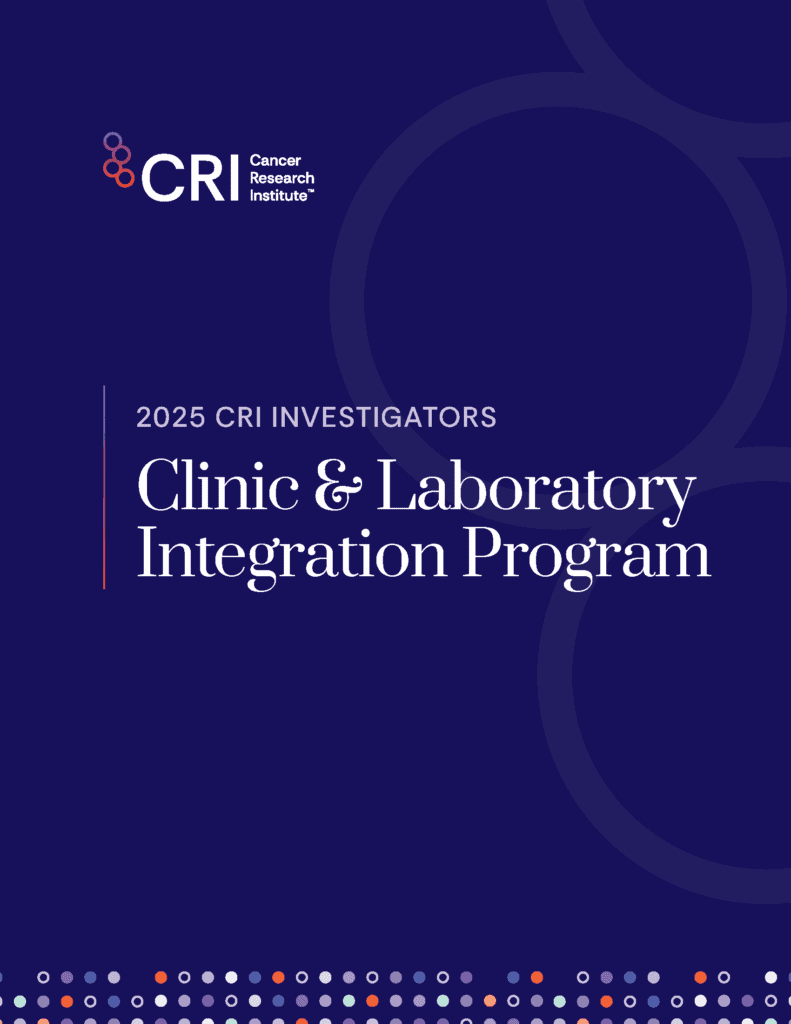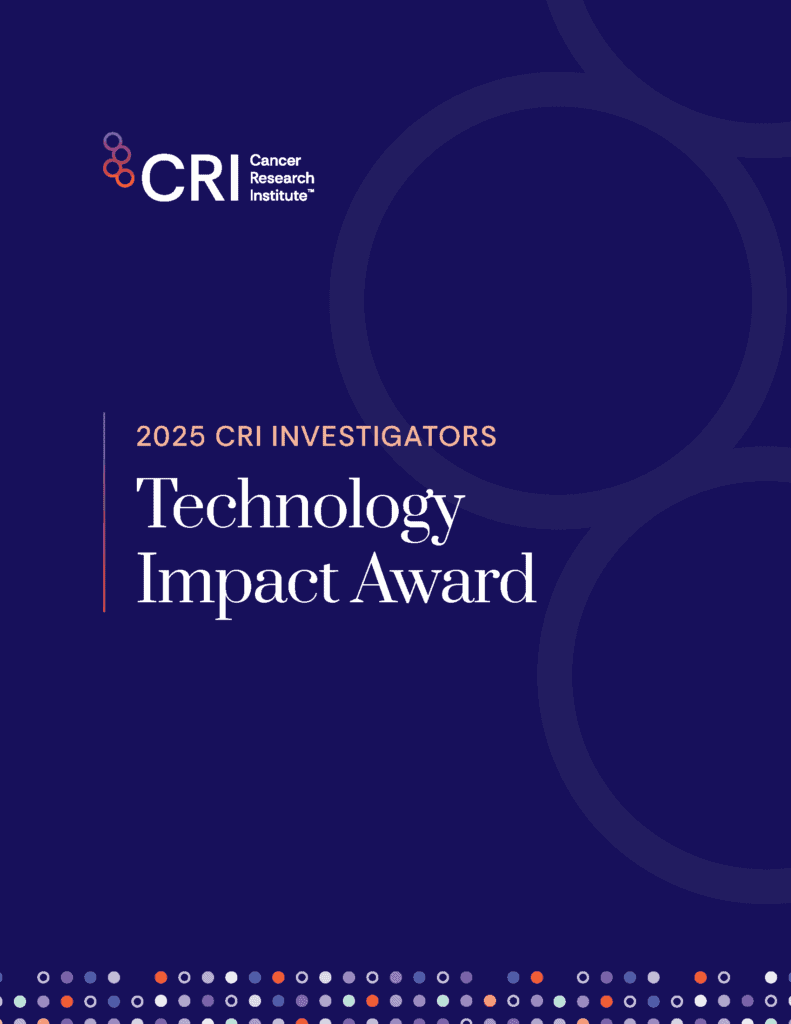What if the next breakthrough in cancer treatment isn’t decades away—but taking shape in a lab right now?
To turn promising discoveries into lifesaving immunotherapies, researchers need the resources and support to test bold ideas and move them to real-world treatments. That’s why the Cancer Research Institute (CRI) is proud to announce the 2025 CLIP and Technology Impact Award projects, a new class of high‑potential studies and tools designed to push cancer immunotherapy further and faster.
Why These Awards Matter
Unlike CRI’s fellowships and investigator grants, which support individual researchers, the CLIP and Technology Impact Awards invest directly in high‑impact projects—translational ideas with the power to unlock new clinical strategies or equip researchers with next-generation tools.
“Each of these projects tackles immunotherapy’s toughest hurdles—resistance, non-response, and patient variability—with bold thinking and real urgency,” said CRI’s CEO Alicia Zhou, PhD. “We’re proud to support this cohort of scientific risk-takers as they bring new solutions to the clinic and the lab.”
Each year, CRI backs a select group of proposals that challenge the status quo in cancer immunotherapy. These awards stand apart by fueling work that can deliver tangible tools and insights for patients worldwide. Learn more about how to apply.
2025 CLIP Projects: Bridging Bench and Bedside

The Clinical and Laboratory Integration Program (CLIP) fuels early-phase studies that test the translational potential of new immunotherapy approaches. This year’s CLIP awardees are pursuing projects that explore novel immune cell targets, tumor microenvironment dynamics, and combination strategies across a range of cancer types—from kidney to chordoma to melanoma.
Selected CLIP-supported projects in 2025 include:
- Exploring metabolic rewiring in tumor-infiltrating immune cells to improve patient response.
- Investigating T cell memory in solid tumors to expand the reach of durable remission.
- Targeting new immune escape mechanisms in chordoma and kidney cancer.
- Probing how gut microbes modulate immune function and shape therapy outcomes.
The 2025 CLIP cohort includes investigators at Yale, MD Anderson, Duke, NIH, Weill Cornell, and international institutions such as the University of Melbourne and Lund University.

2025 Technology Impact Awards: Building the Tools of Tomorrow

While CLIP grants shape discoveries in patient care, the Technology Impact Awards accelerate the development of enabling platforms—tools that unlock entirely new ways to study, visualize, or manipulate the immune system in cancer.
This year’s supported technologies include:
- A single-cell imaging platform to map immune responses in real-time within tumors.
- Novel CRISPR-based tools for high-throughput discovery of immune resistance pathways.
- In vivo models that better replicate human immune-tumor interactions.
- Advanced computational frameworks that decode immunotherapy biomarkers from complex datasets.
Projects funded this year span a collaborative research group at UC Berkeley to breakthrough work at Mass General Brigham and Boston Children’s Hospital.

By funding these ambitious and well-conceived projects, CRI continues to push the boundaries of what’s possible in cancer immunotherapy. As these investigators pursue their work, the field will inch closer to a future immune to cancer, where more patients benefit from treatments that are precise, powerful, and lasting.
